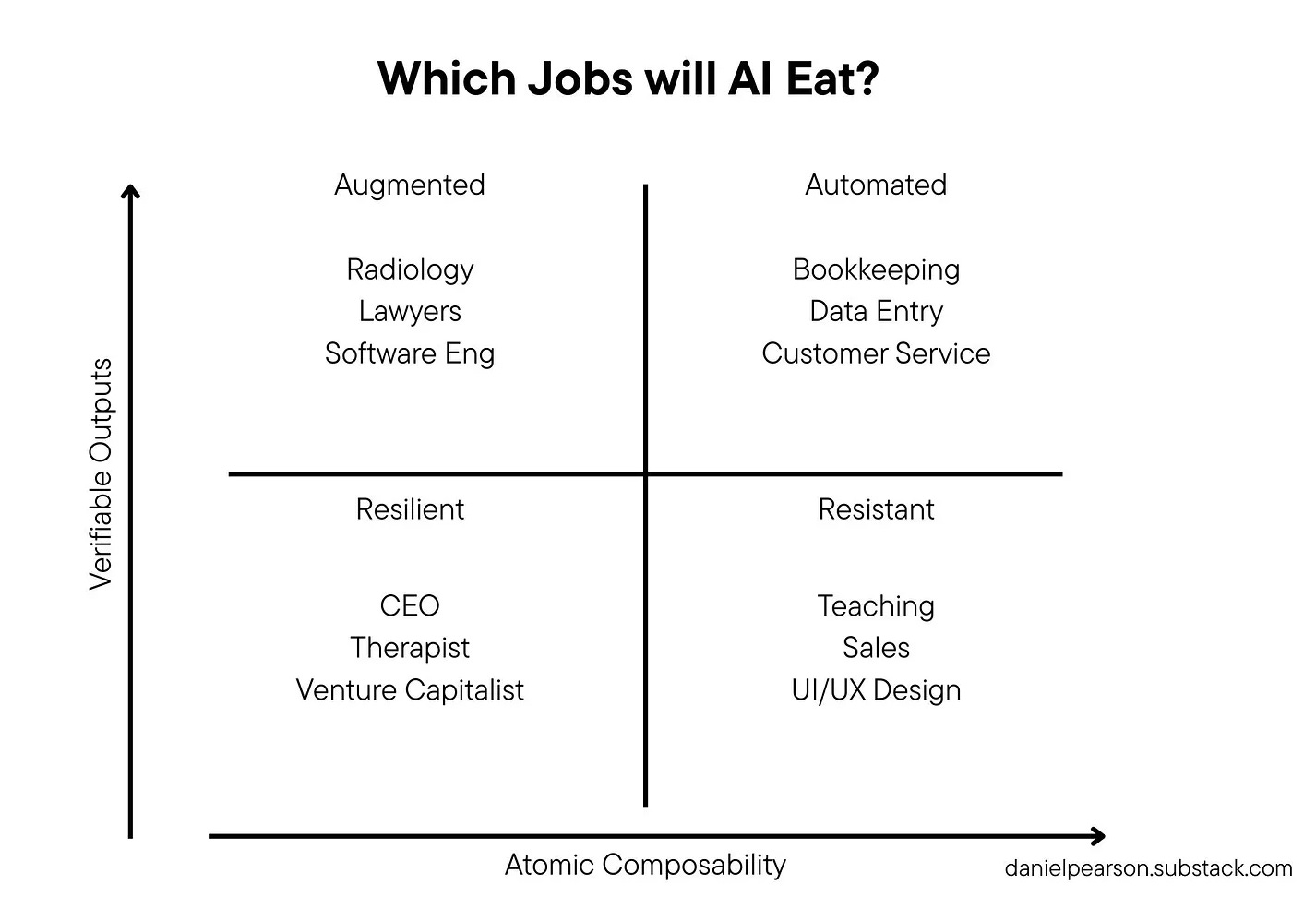Flow State #2 - Atomic Units of work, The Future of Education and Selling Solutions not Dreams
the best time to do something new is always now
Welcome to Edition 2 of Superfluid: Flow State where I curate the smartest takes on startups, AI, and capital allocation from the 75+ articles I read every week. I’ll give you the key insight from 4 of the best pieces that I consumed over the last week that you can immediately apply to your business (in <2 minutes).
Feel free to hit reply and let me know what you thought of this week’s article. I respond to every email.
Today's word count: 502
Read time: 2 min 18 sec.
This was an interesting way to think about how to think about mapping specific role functions to API calls. The more a task can be broken down into discrete, atomic parts with verifiable success metrics (think categorizeExpense() or generateContract()), the faster AI will eat it.
Coincidentally, I also came across this podcast by the gtm engineer where Anshul, the founder of Actively, talks about the cognitive architecture required to build a world-class agentic GTM motion. His core insight is that a GTM engineer’s job is to codify a salesperson's intuition by turning their mental model into a data model where the account becomes the "unit" of work.
The Future of Education and EdTech
Coming from a family that has prioritised education above everything else (my grandfather started his own school and my mum was a chemistry teacher), I’ve always been fascinated with how people learn and why they learn anything. I started my own tutoring business in uni and now I'm building AI tools to accelerate my own learning across various domains.
The dream of rigorous personalised tutoring or coaching has previously been cost prohibitive. You might take music lessons once a week but to do it everyday is expensive. We’re seeing this shift with AI.
This profile of Joe Liemandt and how he built Alpha School is a perfect example of that. By investing a billion dollars into an AI-powered tutoring system, he's creating a K-12 school that is teacherless, homework-free, and radically efficient. Students learn 2x faster with two hours a day of focused effort working towards mastery of each subject. The rest of the day is spent on “workshops, learning things like how to run an Airbnb or food truck, manage a brokerage account or Broadway production, or build a business or drone.”
Speaking of AI EdTech tools, Oboe just launched today where you can create your own personalised course about anything! I’ve been waiting for this launch for a few months now so keen to dive in. Let me know if you check it out.
This one resonated with me personally, especially as I’m pursuing a few different paths and options at the moment. It’s too easy to get caught up in the hype of social media and chase shiny objects, whilst simultaneously feeling like you’re behind everyone else and scrambling to keep up. This article was a great reminder that the best time to do something new is always now.
Don’t Ship Your Pitch Deck to Your Website.
This is my top founder advice pick for the week from First Round. I’ve found that many pre-seed/seed founders aren’t clear enough in differentiating their messaging between investors and customers. A pitch deck sells a dream, but a website has to sell a solution to your customer’s immediate problem.
Emily Kramer from MKT1 is great at breaking down how to adapt the information on each pitch deck slide for your website.
Forward this to a founder who needs better signal.
Thanks for reading! I’d love to hear what you thought about the new format. Feel free to hit reply and let me know, I respond to every email.
Abhi

